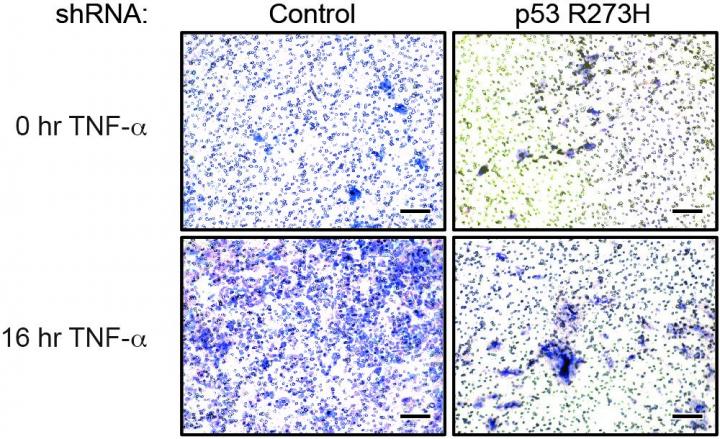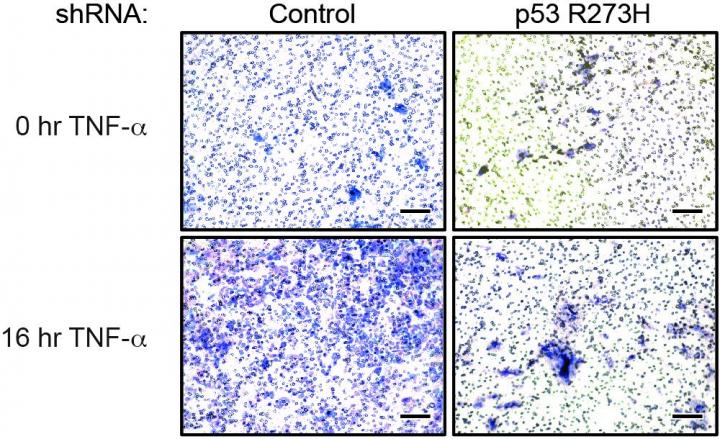
Credit: UC San Diego
A human gene called p53, which is commonly known as the "guardian of the genome," is widely known to combat the formation and progression of tumors. Yet, mutant forms of p53 have been linked to more cases of human cancer than any other gene.
Investigating core mechanisms of how cancer cells respond to their surroundings in the human body, biologists at the University of California San Diego have discovered new evidence about mutant p53 that may reshape our understanding of tumor growth and ultimately how we treat cancer.
A study published in the journal Nature Communications led by Homa Rahnamoun in Shannon Lauberth's laboratory at UC San Diego's Division of Biological Sciences uncovered a new mechanism linking mutant p53 function to chronic inflammation — a long-term condition typically associated with a response in the body's immune system–which can be induced in situations ranging from stress to food consumption. Lauberth said increasing evidence supports the role of chronic inflammation in the predisposition and progression of cancer, with some human tissues being more susceptible to tumor growth influenced by inflammation, including colon and breast cancers.
Through large-scale genomic analyses, the researchers discovered that mutant p53 amplifies the impact of inflammation leading to increases in the invasive behavior of cancer. Thus, rather than fighting tumor growth, mutant forms of p53 appear to be tapping into the body's immune response system to fuel pro-inflammatory responses that increase cancer growth.
"Our findings suggest the importance of considering the genetic alterations of an individual's cancer since this can influence the impact of inflammation on human cancer," said Lauberth, an assistant professor in the Section of Molecular Biology. "Immune therapy has been helpful in terms of targeting cancer and decreasing tumor size but now we found that inflammatory mediators can instead orchestrate growth in cancer cells harboring a mutation in p53. These findings make us really rethink the process of tumorigenesis and how we treat cancer."
Lauberth says this research can potentially help better define clinically relevant cellular targets and their responses in human cancer with the ultimate goal of aiding the development of target-based cancer screening and therapies.
###
Coauthors of the paper include UC San Diego colleagues Hanbin Lu, Sascha Duttke, Christopher Benner and Christopher Glass.
Media Contact
Mario Aguilera
[email protected]
858-822-5148
@UCSanDiego
http://www.ucsd.edu





